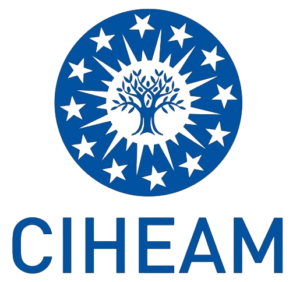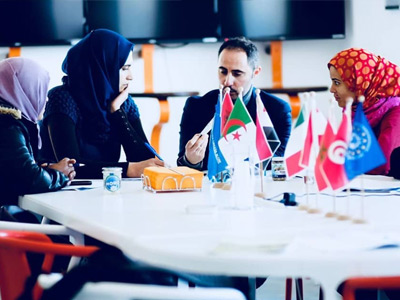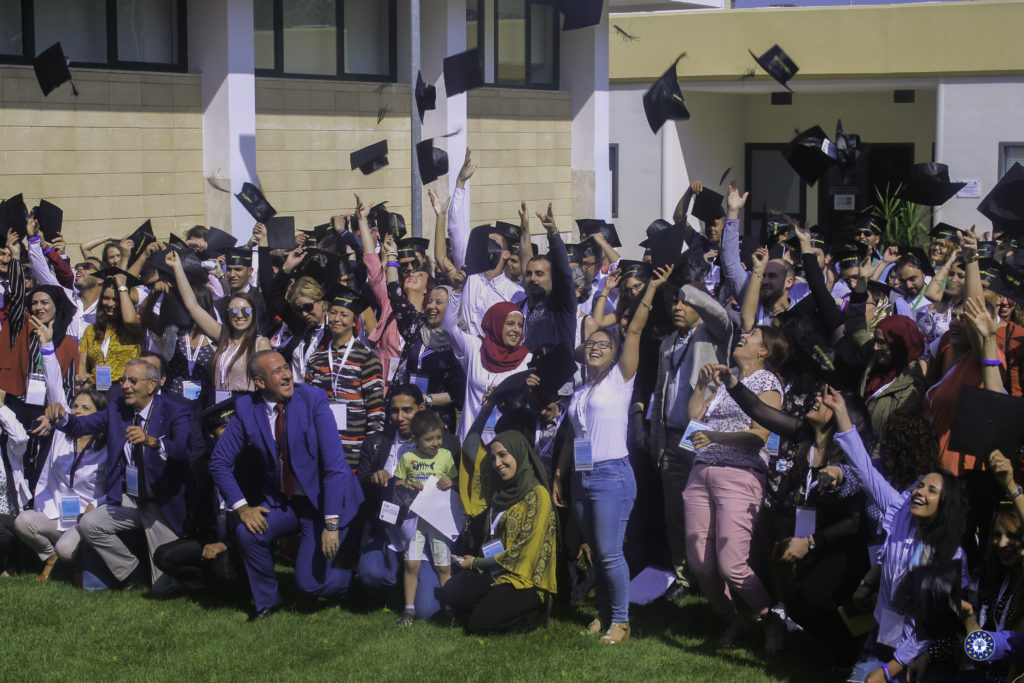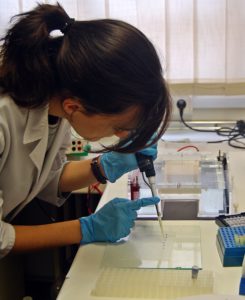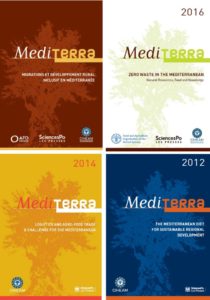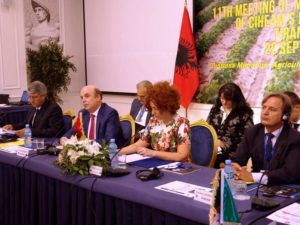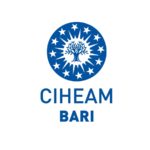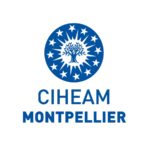Parménides XI, Montpellier, 17-19 June 2025
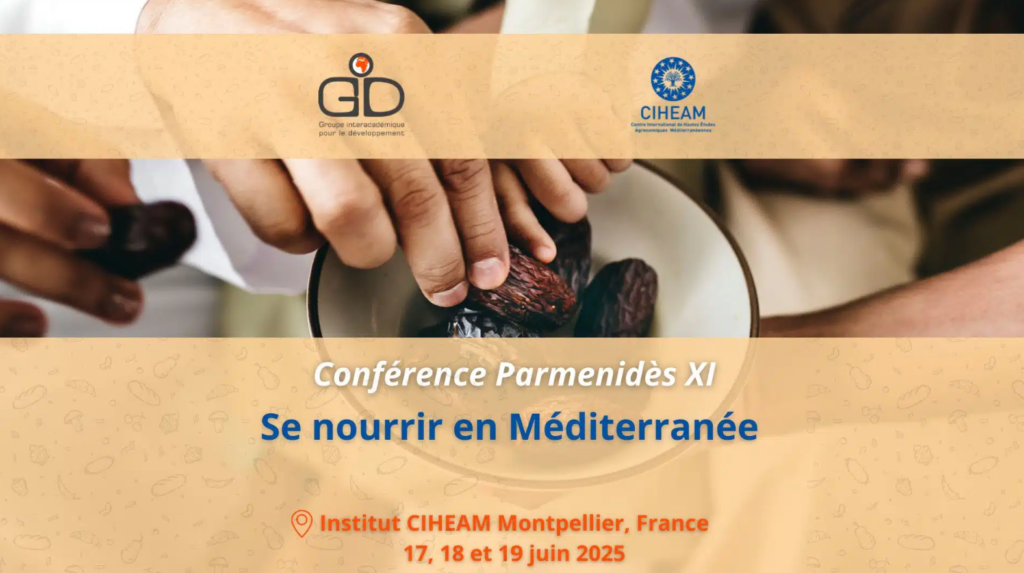
| Concept note Agenda Recording and Proceedings of the Colloquium to be Published Soon |
The International Centre for Advanced Mediterranean Agronomic Studies (CIHEAM) and the Interacademy Group for Development (GID), with the support of the French Academy of Sciences, and Academy of Agriculture, the SFS-MED platform, and Montpellier Méditerranée Métropole, organized the eleventh edition of the Parmenidès Colloquium entitled “Feeding in the Mediterranean,” which was held from 17 to 19 June 2025, at the CIHEAM Montpellier. This event brought together international experts to discuss the major agricultural and food transitions in the Mediterranean in the face of the challenges of climate change, food and nutrition security, and sustainable development. The opening address by Ms Annie Genevard, French Minister of Agriculture and Food Sovereignty, was broadcast by video. Among the high-level speakers were two prominent figures from the Mediterranean agricultural sector: Mr Mohammed Sadiki, former Minister of Agriculture, Maritime Fisheries, Rural Development, and Water and Forests of Morocco, and Ms Akissa Bahri, former Minister of Agriculture, Water Resources, and Fisheries of Tunisia. Their contributions brought valuable political insight grounded in governmental experience, highlighting national priorities and ongoing reforms aimed at strengthening food sovereignty and agricultural resilience in the region.
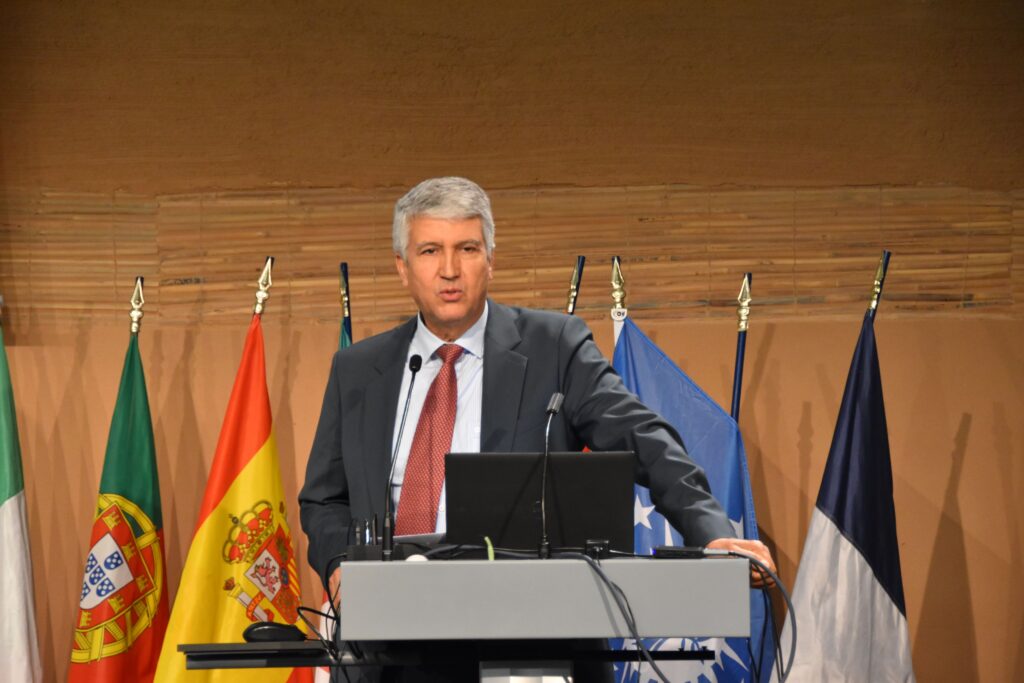
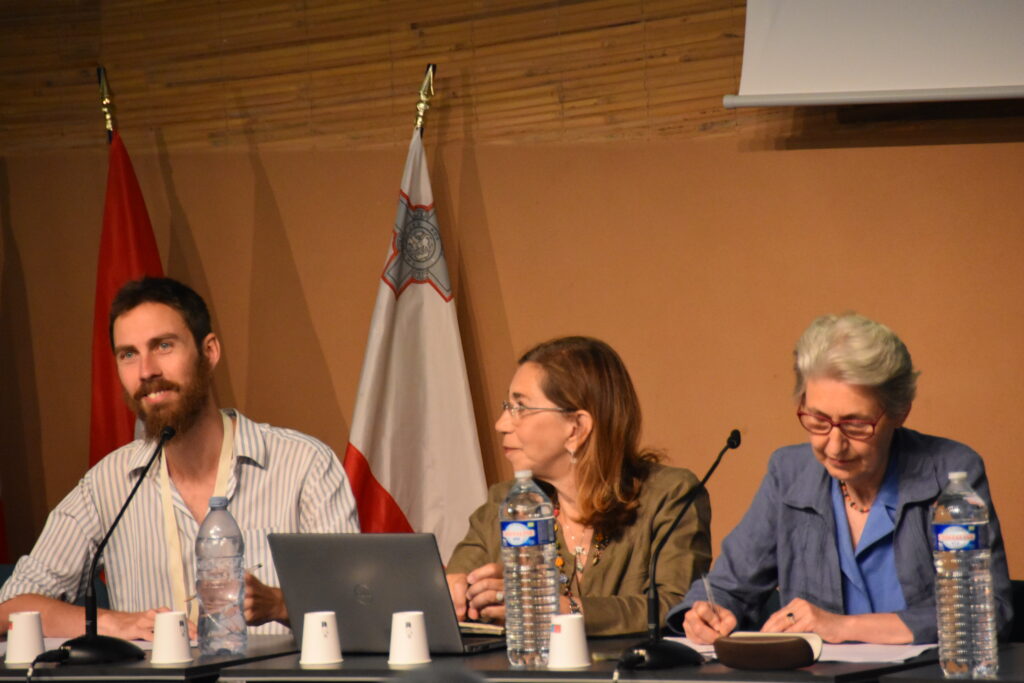
Since its inception, the Parménides Colloquium has established itself as a major forum for dialogue between science and policy, promoting interdisciplinary reflection and systemic approaches. This edition focused on the interactions between production models, consumption behaviours, public policies, and market dynamics, in a context marked by the scarcity of natural resources, fragile ecosystems, and growing geopolitical tensions.
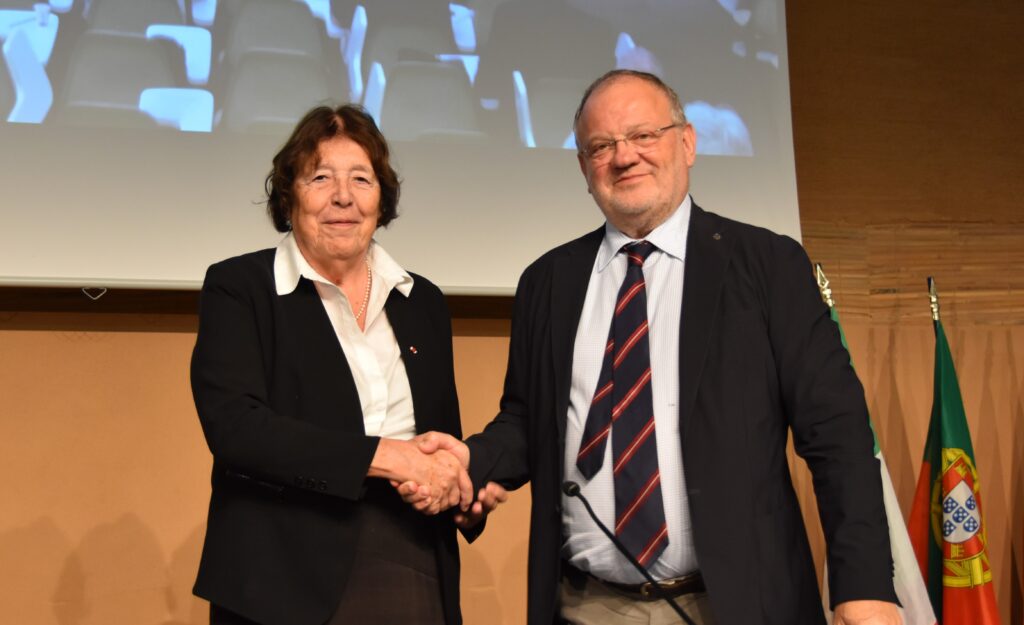
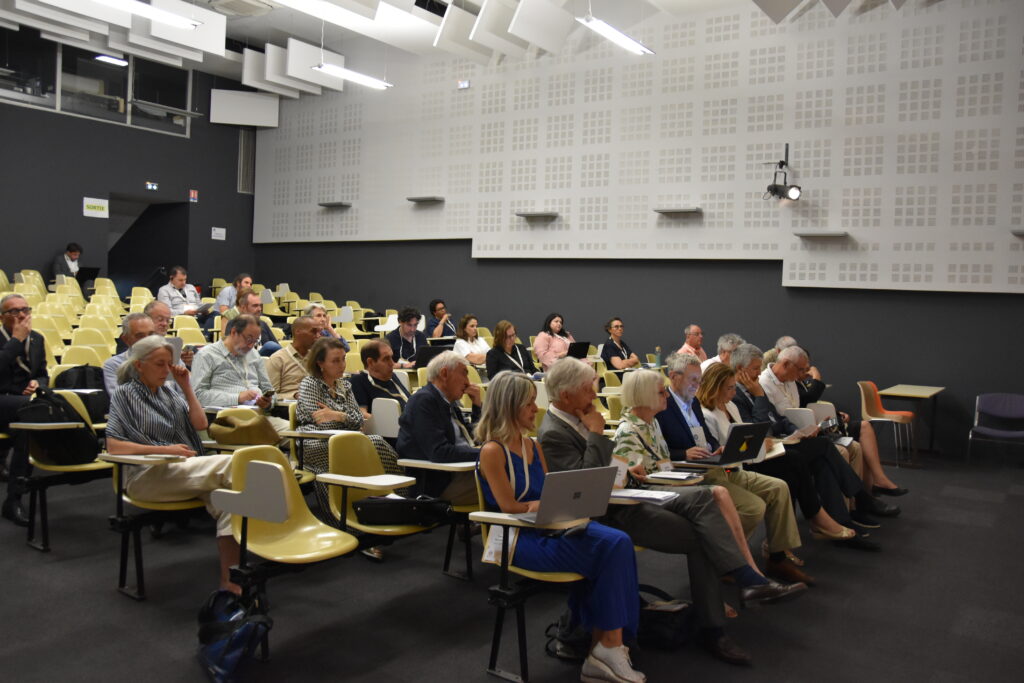
Throughout the discussions, several key regional concerns were raised. These included the need for an agroecological transition capable of meeting growing food demands, the search for alternatives in response to the water crisis, and the redefinition of production and supply models in a framework of food sovereignty. Attention was also given to regulatory mechanisms to ensure fair access to healthy, high-quality, and culturally rooted food. The role of the Mediterranean diet sparked a lively debate, especially as it is increasingly declining in daily practices, threatened by the standardisation of eating habits and the rise of ultra-processed foods.
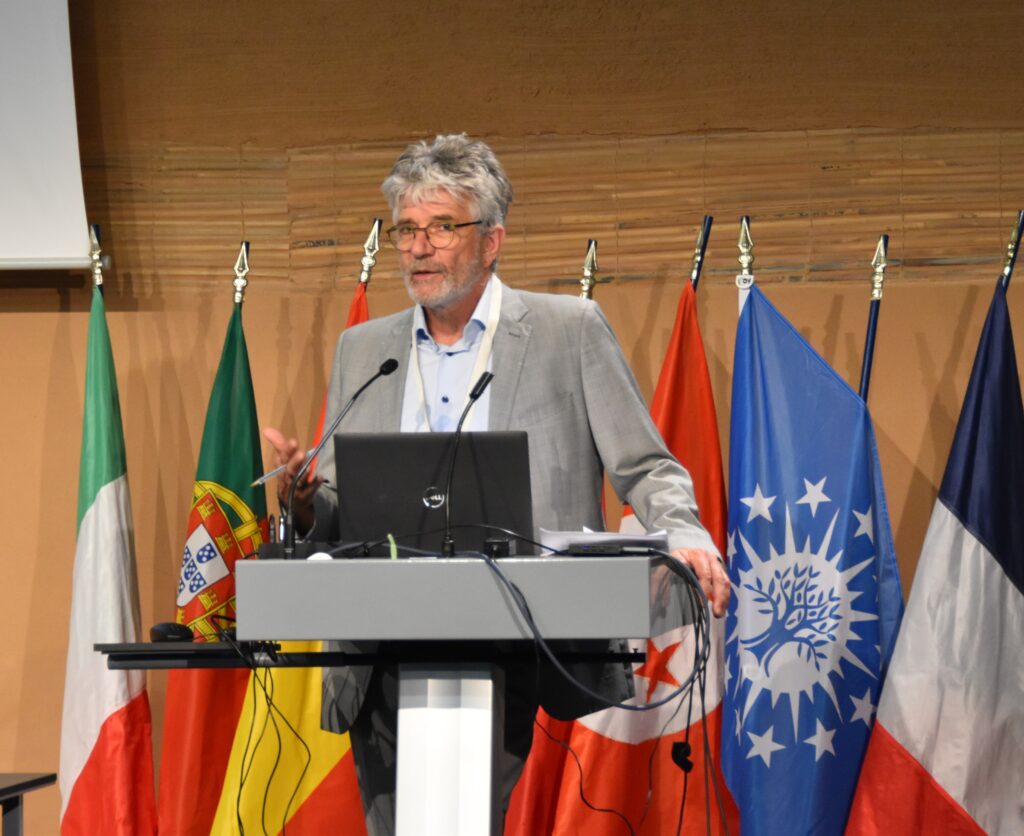
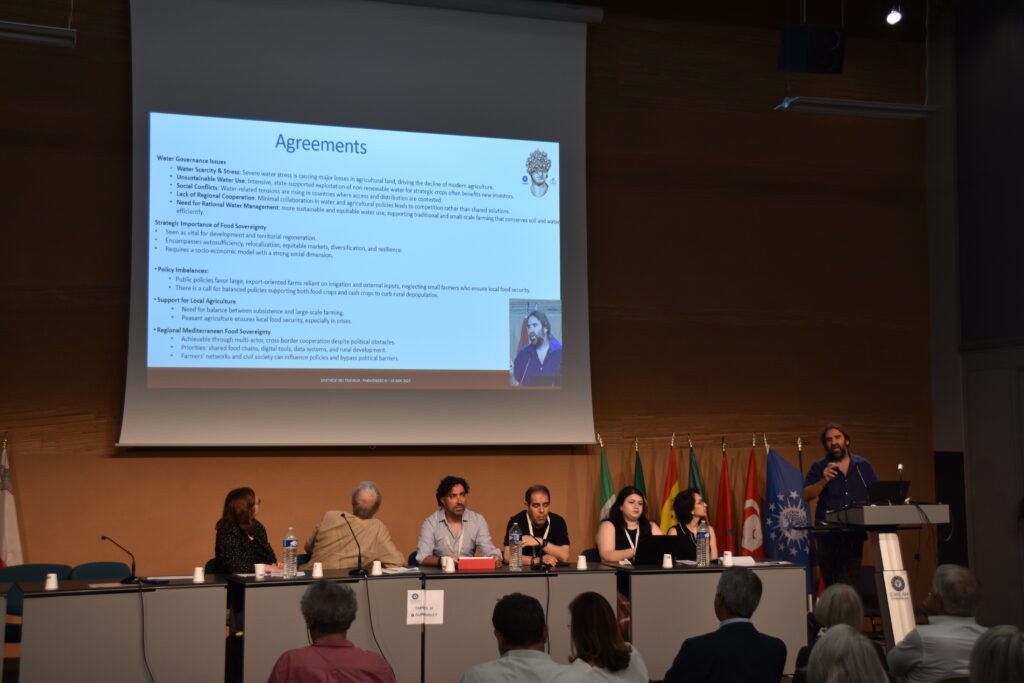
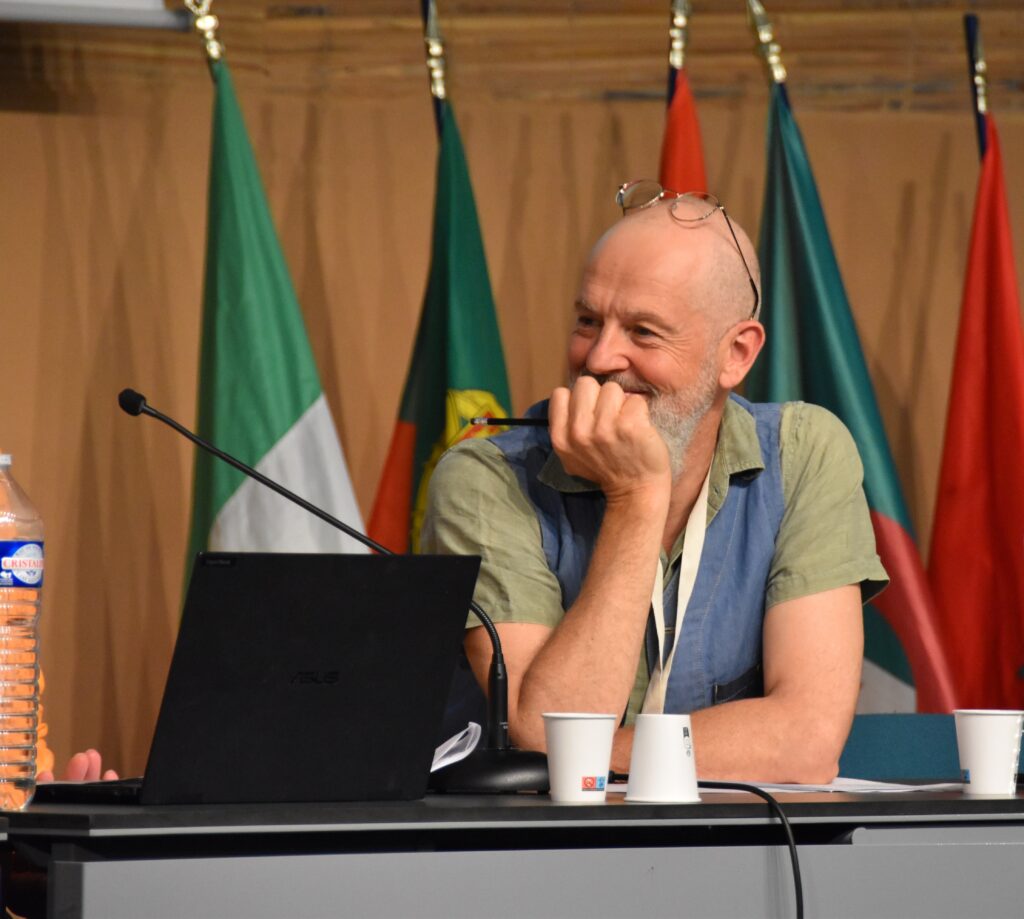
An Event Embedded in a Mediterranean Cooperation Dynamic
This colloquium took place within a broader momentum of strenghtened Mediterranean cooperation. The CIHEAM and the GID, in partnership with other academic, scientific, and regional institutions, aimed to highlight local knowledge, sustainable innovations, and drivers of collective action to address the food challenges of the 21st century. Montpellier, a centre of excellence in agroecology and agricultural sciences, provided an ideal setting for these forward-looking discussions. The proceedings revealed several major insights.
A Food Model in Search of New Landmarks?
For more than 70 years, agricultural policies have favoured a productivist vision, focused on modernisation and standardisation, primarily to meet growing food demands, often at the expense of cultural and ecological specificities. Food has gradually drifted away from the social contract to become a commercial issue shaped by market demands and technologies. In this context, food must be restored to the heart of the relationship between citizens, territories, and institutions. It is therefore urgent to place food issues back at the centre of public policy.
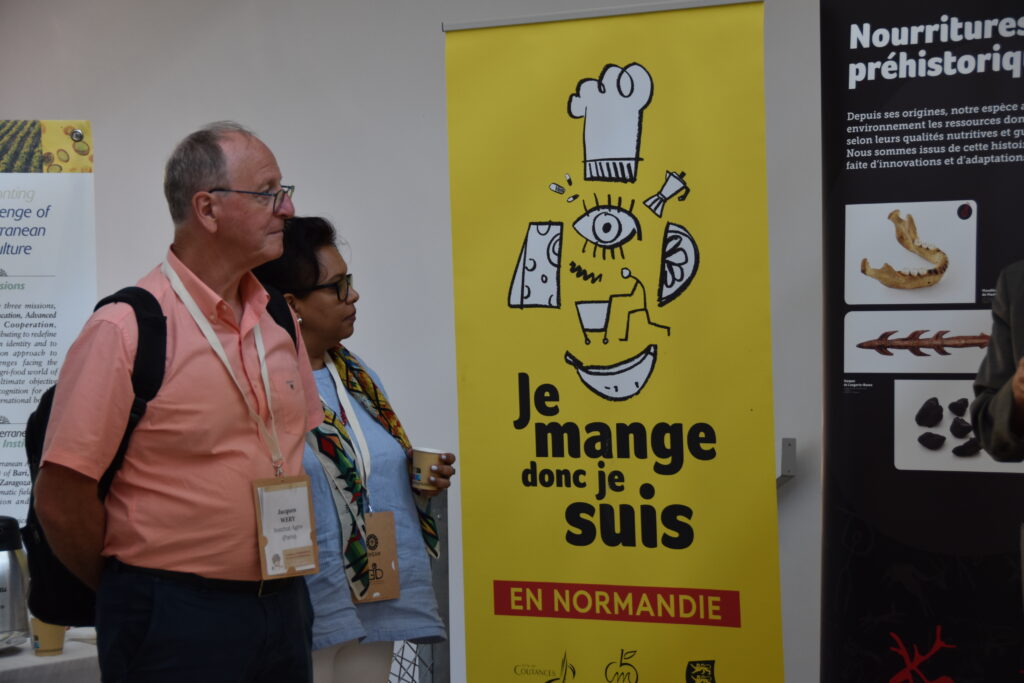
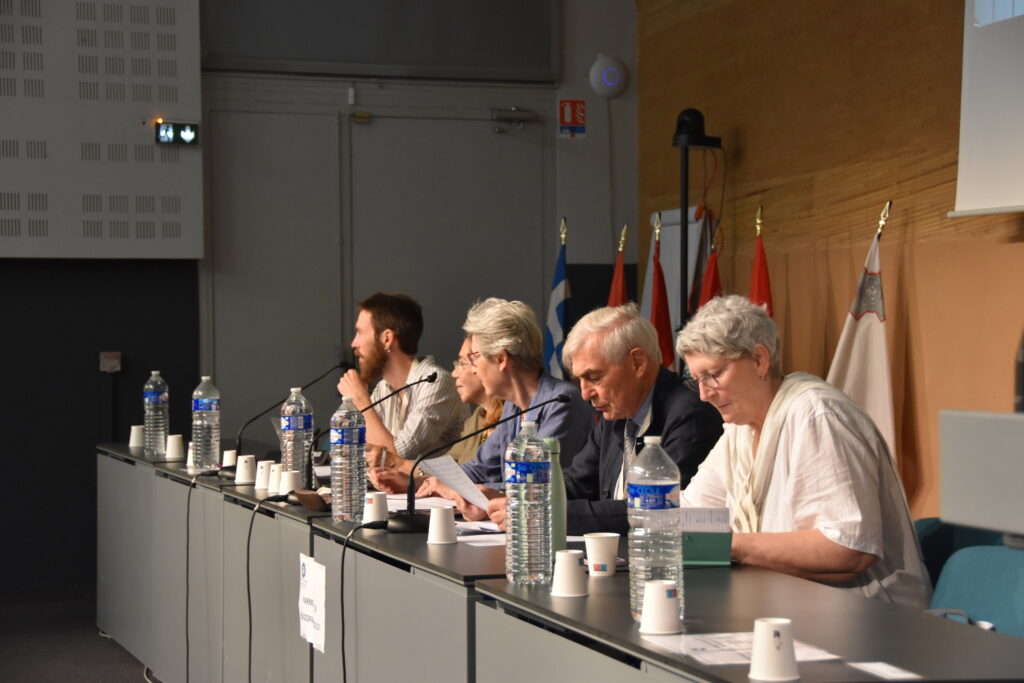
The Mediterranean Diet: Between Heritage and Future
The Mediterranean diet, a cultural and nutritional heritage of the region, remains a globally recognised model of sustainability. Yet its decline in daily eating habits is a cause for concern. The debates highlighted the urgent need to relearn how to cook, to promote pulses and forgotten plants, and to educate from an early age (in schools, families, canteens). To support his, food policies must incorporate these priorities through a coherent approach that links health, culture, sustainability, and social justice.
From Fork to Farm
The colloquium also called for a reversed approach to agricultural policies: starting from the nutritional and cultural needs of populations to rethink production systems. The aim is to promote diversified, resilient, and locally rooted forms of agriculture that combine traditional farming knowledge with contributions from research and technology, in a spirit of complementarity and respect for living systems.
Towards an "Agrology"
This paradigm shift requires moving beyond classical agronomy to develop an "agrology": a science and policy of agriculture grounded in ecological interdependence, territorial dynamics, and the imperative of sustainability. Aligned with the "One Health" vision, this approach calls for greater dialogue between disciplines, stakeholders, and countries in the region.
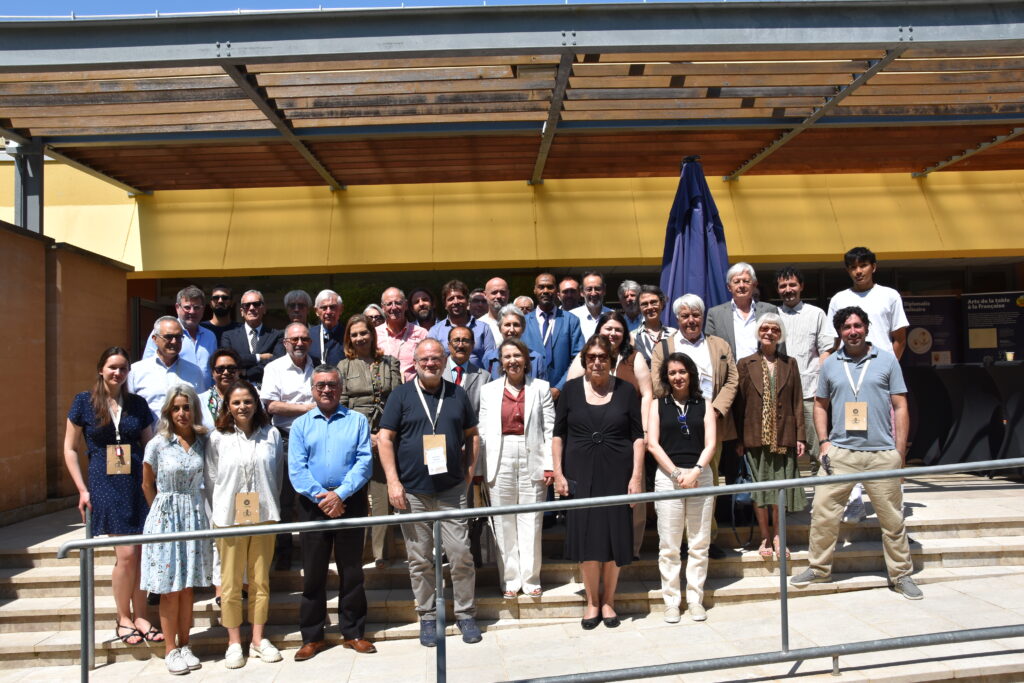
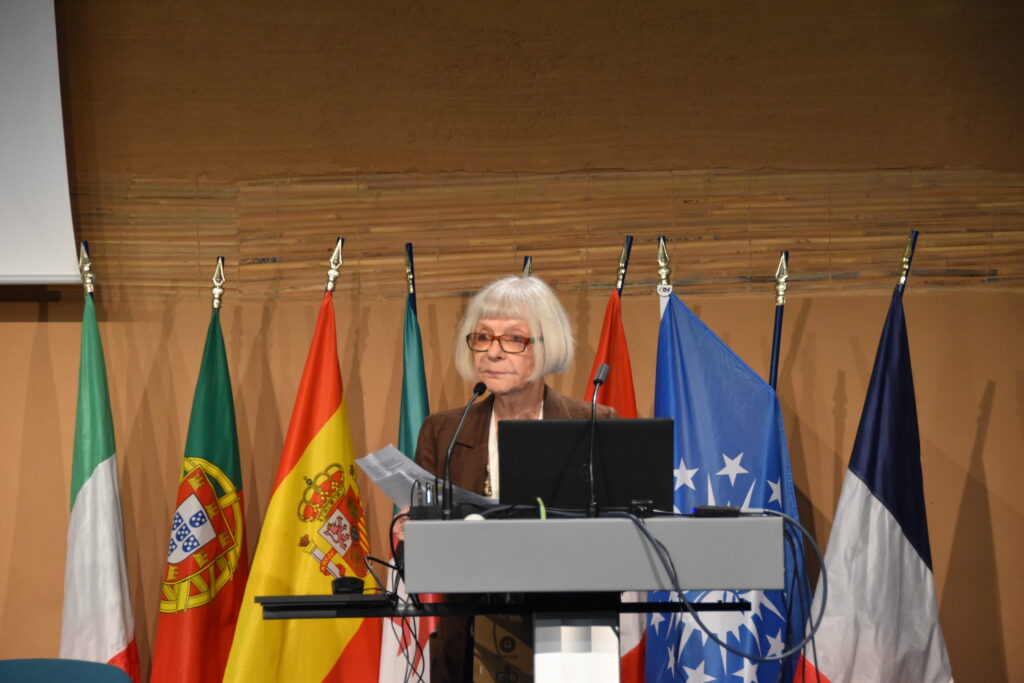
In a context of climate, nutritional, and social crises, feeding the Mediterranean sustainably is a political, cultural and ethical challenge. It is also a shared responsibility that requires collective mobilisation of Mediterranean societies and their partners to build future pathways based on solidarity, diversity, and innovation.


